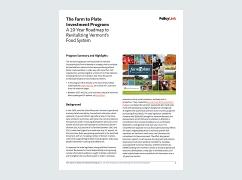

Continually Improving Promise Neighborhoods: The Role of Case Management Data
A robust case management system is critical to tracking progress and success while executing a cradle-to-career continuum of services and supports. Authored by the Urban Institute, this report provides guidance on how to review and utilize case management data to accelerate the achievement of Promise Neighborhoods results.
| More >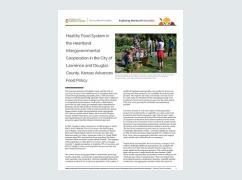
Communities of Innovation: Lawrence and Douglas County, Kansas
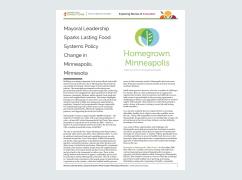
Communities of Innovation: Minneapolis, Minnesota
Building on existing community food system efforts and public interest in local foods, the City of Minneapolis, Minnesota has successfully developed a broad range of food systems related policies. The municipal government and its strong non-governmental partners take a full systems approach, addressing food system areas ranging from urban agriculture to local food business, community kitchens,...
| More >
Communities of Innovation: Cleveland, Ohio
The City of Cleveland municipal government began advancing food policy in 1976 with support for urban agriculture, namely community gardening, which has remained the city’s key area of focus. In 2008 other food systems issues, beyond urban agriculture, began receiving unprecedented municipal government support. For example, the municipal government began linking food production policies with...
| More >Tracking Healthy Food Sales
Through a review of healthy food retailer program reports and interviews with program staff and experts in the field, ChangeLab Solutions has assembled a list of viable sales data tracking methods. We have assessed each method using four criteria – accuracy, cost, burden on program staff, and burden on store staff – to show each method’s strengths and weaknesses. This easy-to-use resource can...
| More >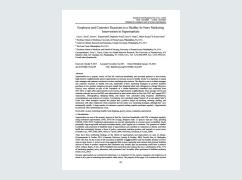
Employee and Customer Reactions to a healthy in-store Marketing Intervention in Supermarkets
Supermarkets are a primary source of food for American households, and increased presence in low-income, high-minority neighborhoods present opportunities to increase access to healthy foods. It is important to assess store manager and customer reactions to in-store marketing interventions. This study aimed to evaluate manager and customer reactions to stealth, low-cost, sustainable in-store...
| More >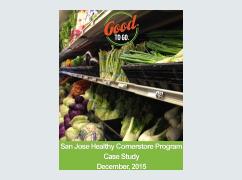
Good. To Go. San Jose Healthy Corner Store Program Case Study
This case study profiles the Healthy Corner Store Program (HCP) developed as part of The Health Trust’s Good. To Go. (G2G) campaign, a community-based campaign aimed at increasing the purchase of produce and quality foods through a network of on-the-ground, trusted community vendors, including corner store retailers, Fresh Cart mobile produce vendors, farmers’ market managers, and urban...
| More >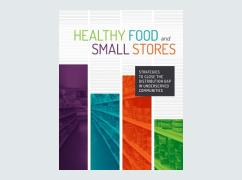
Strategies to Close the Distribution Gap for Small Stores in Underserved Communities
In October 2015, more than 40 public health leaders and national experts in food retail, agriculture, distribution and marketing convened in Philadelphia for Healthy Food in Small Stores: Distribution Opportunities to Improve Community Health. This national conference tackled challenges and best practices for distributing healthy food to small stores across the United States. Co-hosted by The...
| More >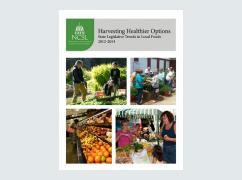
Harvesting Healthier Options: State Legislative Trends in Local Foods, 2012-14
This report focuses on state legislation in all 50 states enacted between 2012 and 2014 that aimed to strengthen various components of local food systems (see Table 1 on page 2). The report is organized into chapters focused on six policy areas with the most state legislative action: local food system approaches; farm to school; farmers’ markets; community gardens and urban agriculture;...
| More >
